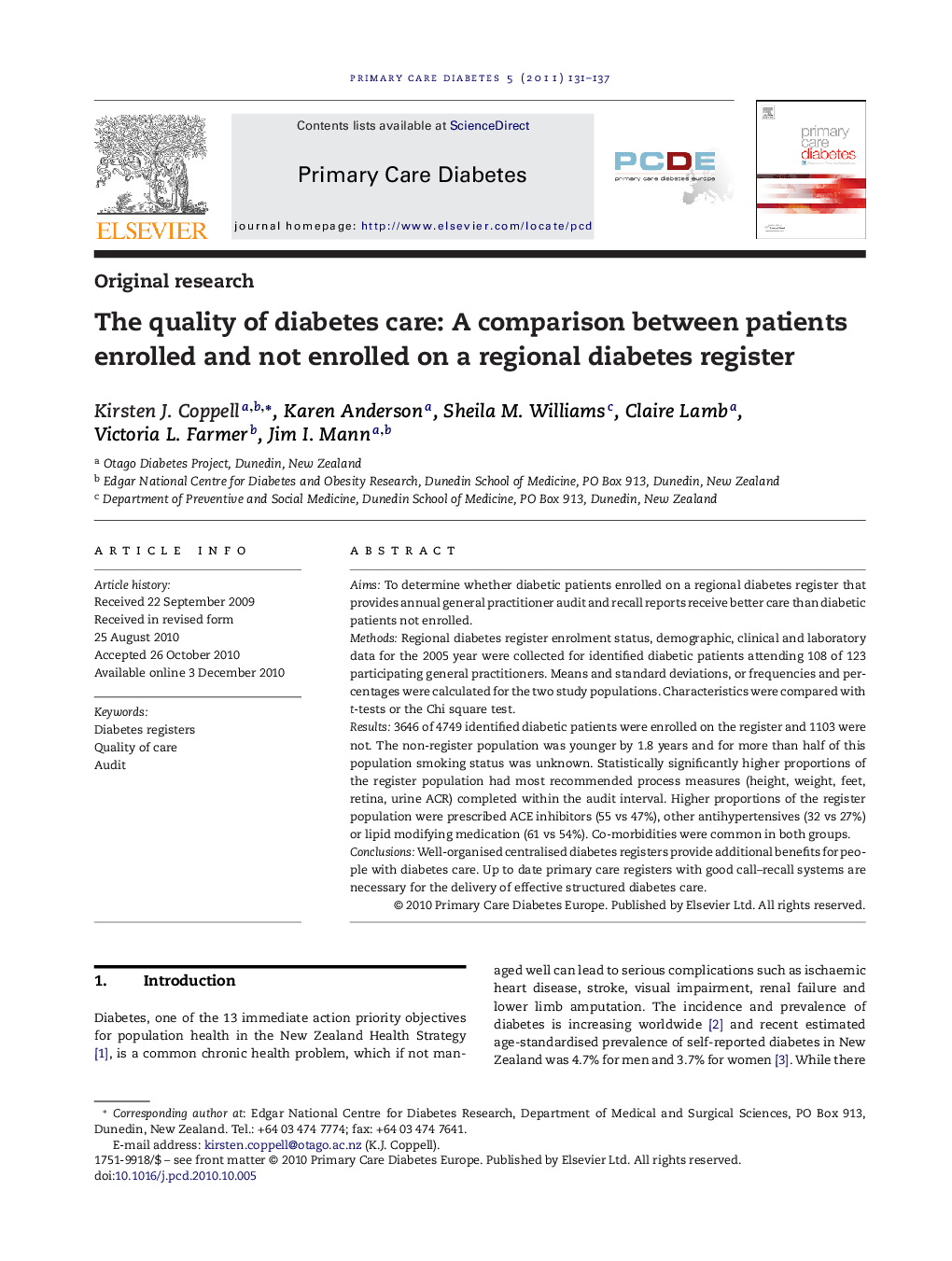| Article ID | Journal | Published Year | Pages | File Type |
|---|---|---|---|---|
| 2675817 | Primary Care Diabetes | 2011 | 7 Pages |
AimsTo determine whether diabetic patients enrolled on a regional diabetes register that provides annual general practitioner audit and recall reports receive better care than diabetic patients not enrolled.MethodsRegional diabetes register enrolment status, demographic, clinical and laboratory data for the 2005 year were collected for identified diabetic patients attending 108 of 123 participating general practitioners. Means and standard deviations, or frequencies and percentages were calculated for the two study populations. Characteristics were compared with t-tests or the Chi square test.Results3646 of 4749 identified diabetic patients were enrolled on the register and 1103 were not. The non-register population was younger by 1.8 years and for more than half of this population smoking status was unknown. Statistically significantly higher proportions of the register population had most recommended process measures (height, weight, feet, retina, urine ACR) completed within the audit interval. Higher proportions of the register population were prescribed ACE inhibitors (55 vs 47%), other antihypertensives (32 vs 27%) or lipid modifying medication (61 vs 54%). Co-morbidities were common in both groups.ConclusionsWell-organised centralised diabetes registers provide additional benefits for people with diabetes care. Up to date primary care registers with good call–recall systems are necessary for the delivery of effective structured diabetes care.
